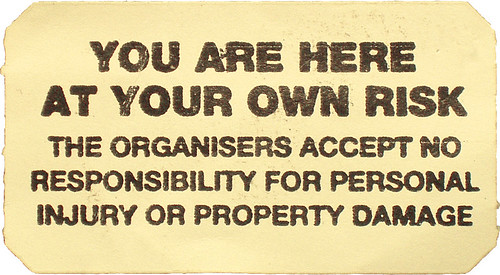“I don’t mean to sound arrogant, but…” – Do personal disclaimers work?
.

Nope. In fact if you say “I don’t mean to sound arrogant, but…” and then say something arrogant it increases judgments of arrogance. All you do with that disclaimer is call attention to the fact that you’re being arrogant:
Limited research has examined the effects of using disclaimers on person perception, and none has examined disclaimer effectiveness. Four studies test whether disclaimers effectively ward off negative judgments regarding the specific disclaimed traits. Study 1 finds that using an arrogance disclaimer (“I don’t mean to sound arrogant, but . . .”) increased judgments of the speaker’s arrogance but only when followed by an arrogant comment. Studies 2 and 3 yield similar findings using laziness and selfishness disclaimers. Studies 2, 3, and 4 examine five possible underlying mechanisms regarding why disclaimers can backfire. The most support was obtained for the notion that disclaimers increase an audience’s expectations that the speaker will say something consistent with the unwanted trait, which then increases perceptions of that trait in the speaker. We discuss some possible moderating variables as well as some implications of these findings for general impression formation models.
Source: “I Don’t Mean to Sound Arrogant, but . . .” The Effects of Using Disclaimers on Person Perception from Personality and Social Psychology Bulletin recent issues by El-Alayli, A., Myers, C. J., Petersen, T. L., Lystad, A. L.
Join over 320,000 readers. Get a free weekly update via email here.
Related posts:
New Neuroscience Reveals 4 Rituals That Will Make You Happy
New Harvard Research Reveals A Fun Way To Be More Successful
How To Get People To Like You: 7 Ways From An FBI Behavior Expert




